Ghost Watchers

Ghost Watchers - Phasmophobia's little sister in search of ghost popularity
The success of some games inevitably leads to reimaginations from other developers. The rule of thumb works in the indie segment like a Swiss watch. After the success of Hotline Miami there were dozens of variations on the theme of a perfect top-down shooter with a nasty soundtrack; after the success of Darkest Dungeon there were dozens of RPGs; and even the seemingly unbeatable Disco Elysium got a little brother. This time, the exorcist simulator, loved by many, suffered the same fate.
The Ghost of Plagiarism
As in Phasmophobia, in Ghost Watchers players have to go to the cursed places with ghosts: houses, schools, police stations and even in the entrances of the post-Soviet hinterland.
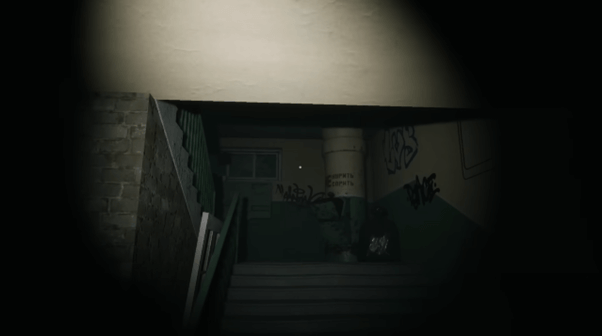
As in the mastermind, the theme of exorcism is fully disclosed. Having gone to the next doom place, the player will have all the superstitious attributes: starting with salt, ending with high-tech ectoplasm absorber - you will have to apply everything according to the situation.
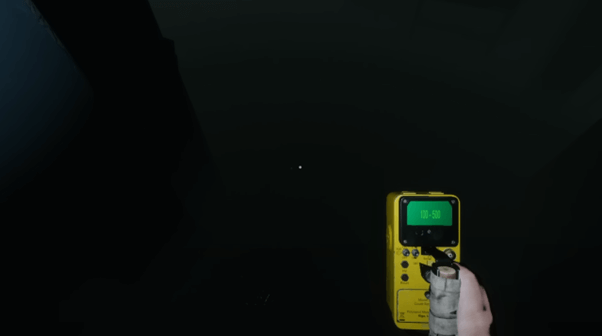
Like Phasmophobia, Ghost Watchers is a session game with the ability to go through the cursed areas in co-op with up to 4 people. Before we delve into Ghost Watcher, we must immediately distinguish one unpleasant nuance: Ghost Wather is a 95% clone of Phasmophobia. The only differences are in the interface, maps and animations, and the fact that the former has a shelter, while the latter only has a server lobby. The only thing Ghost Wather is better than Phasmophobia in is the clarity of the exorcist's profession and the smoothness of the characters' movements.
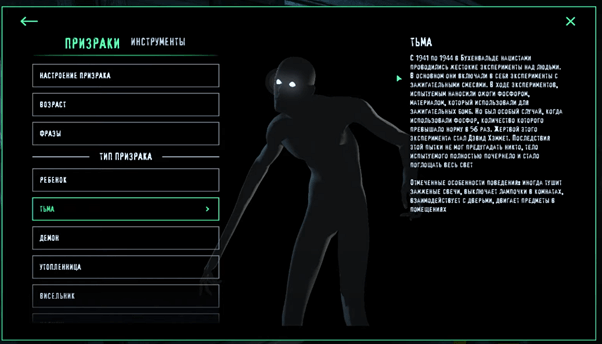
Phasmophobia was originally worked on by one man named Daniel Knight. Phasmophobia took a little over a year to develop, and brought Daniel more success than he ever dreamed possible. Originally Phasmophobia was a VR game, which Ghost Watchers can't boast at the moment of writing this article, came out with a lot of bugs, but after a year it has gained a community and never fails to be seen on the streamers. The formula of the cooperative horror was picked up by Renderise - the developers are much more experienced.
Dirty Work
As written above, Ghost Watcher fits the definition of "exorcist simulator" perfectly. On each mission the player leaves with a whole bunch of gadgets against evil spirits. The difficulty is that all these aspen crosses, holy bombs, etc. do not fit all types of ghosts. So, for example, Darkness is afraid of the aspen cross, and the Hidden One is afraid of the Jesus statue. If you mix up the objects and try to catch a ghost using the wrong method, the ghost will catch the catcher and the session will end in defeat. Two gameplay layers emerge from this unusual condition: firstly, the first half of the session resembles a horror-detective, where the player has to figure out what he ran into by elimination. The detective component does not tolerate mistakes, because even one characteristic of a ghost can fundamentally change the methods of combating it.
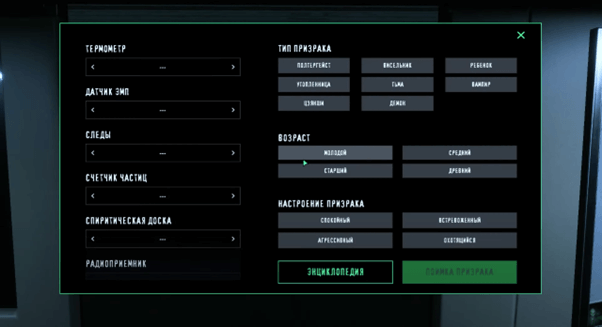
Tools help in the hard detective business. That EMF sensor on the screenshot above is the tip of the iceberg. By taking particle readings, the player will only understand the type of ghost, i.e. roughly speaking, he will narrow down the choice from more than thirty options to twenty. Thermometers will also be needed for an accurate conclusion...
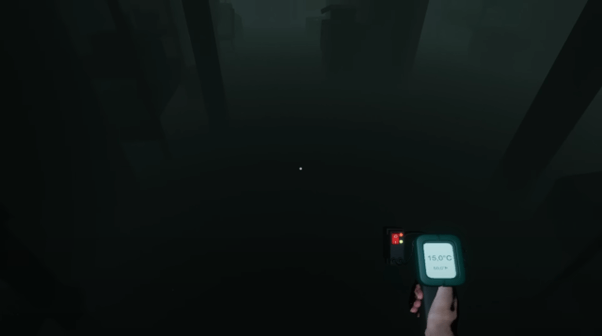
...and Ouija boards and voodoo dolls and a radio receiver through which to communicate with a ghost through a computer microphone. The ghost understands human speech. The player can ask "Where are you?" and get a very unambiguous "behind" answer over an unadjusted wave - it's not a cheap screamer, the ghost answers honestly.
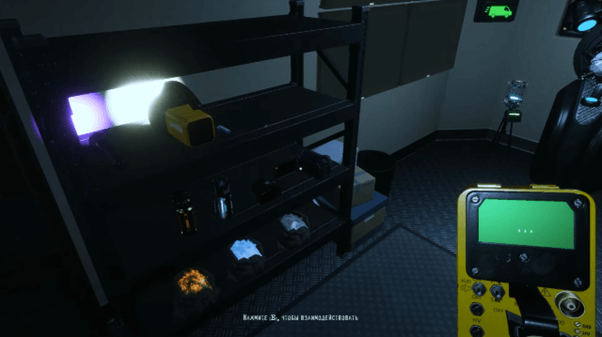
To keep the player from getting confused among the dozens of tools, Ghost Watcher sets tasks at once. The tasks are not complicated, but always with nuance. For example, you might see a seemingly simple task on the board, "Light all the candles in the house. You take a lighter and look for candles...except the ghost might not like it. The undead will blow out the candles and drag you down to the basement, scaring you out of your mind.
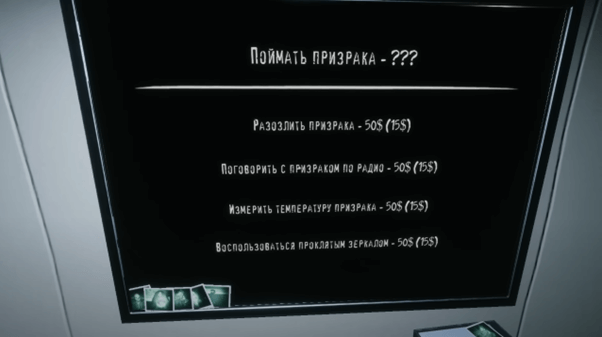
Each successful case brings money, helps determine the nature, age, and type of ghost, and brings the moment of capture closer. Who catches whom depends on the player...
The Illusion of Fear
Ghost Watcher is one of those games that loses its charm over time, rather than sucking you in deeper and deeper. When the player first crosses the threshold of the cursed house, he doesn't know what awaits him around the corner, he doesn't know the purpose of the tools, and he certainly doesn't know the winning strategy. The fear of the unknown during the first runs stirs up interest and excitement. Since the game involves co-op, you can be afraid in company, which does not detract from the threats. In Ghost Watcher is better to play with friends with voice communication without the help of any Skype or Discord, in the game and so implemented voice communication. And voice communication distorts the game if the ghost starts messing around, or even mutes it if the ghost catches someone from the team. These feelings, when instead of a friend's voice you hear a child's crying in the transmitter and a whiff of death behind you - these feelings are inexpressible...
...However, as time goes on, it's not so much the horror of the beyond that worries you as the loss of the equipment you bought with your hard-earned money. In Ghost Watcher, just like in Escape from Tarkov, purchased items are lost forever after defeat. To catch ghosts sometimes requires investing a lot of money. After investing in a camera with a motion sensor, you begin to fear not for your nervous system, but for the time you spent to earn this expensive pleasure.
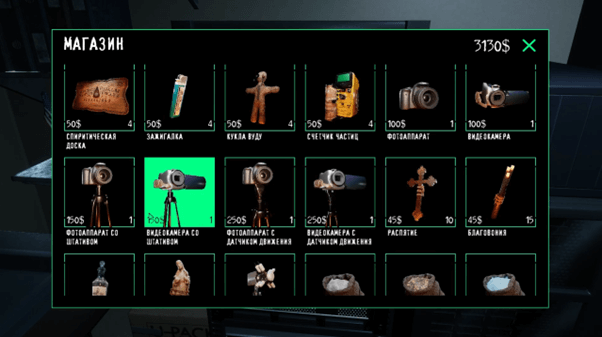
The purchase of items takes place in the trailer. The very process of procuring items is related to Ghost Watcher, suddenly, more to Counter-Strike than to the spirit of the game. Because of the mechanics of purchasing right during the races, the atmosphere of overpowering with something otherworldly is destroyed. Once you raise a couple of levels, the algorithm of passing all the tasks becomes obvious. As a result, the ghost is no longer perceived as something dangerous, the ghost is perceived as a way to earn money.
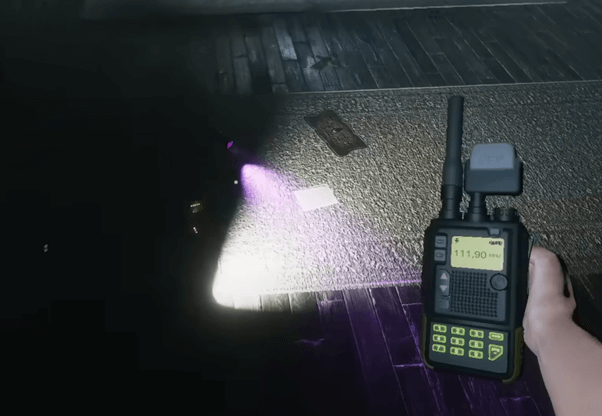
Difficulty levels don't help either. Yes, you can make the ghost more aggressive and dangerous if you want, but by the time the player gets to the maximum difficulty and is able to win on it, no fear is out of the question. All the ways to scare are already known, the ghost's routes of travel are readable. The poor ghost himself can only wait to be caught, against an experienced player he has no answer; hence, the once horror turns into a fun walking simulation.
Is it worth it?
But what Renderise did not go wrong was the price of their game. Ghost Watcher costs only $2.5, and for the amount of content the game has, it's a nice price. If you want, you can buy the game for all your friends and not even feel the cost, paint a couple of evenings with emotions and not be disappointed in the purchase.
